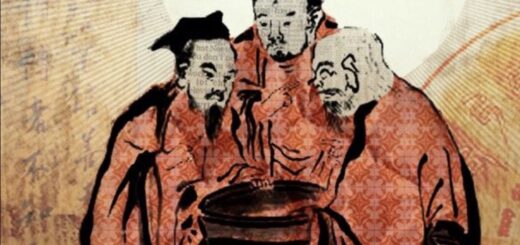Roseto effect, Is social connections best for a healthy heart

Modern life favours egocentric individualist society, where one makes decisions considering their preferences, needs and rights.
A collectivist society, on the other hand, perpetuates a set of values in which the well-being of the community as a whole is given priority over individual preferences.
Roseto effect is an observation based on such collectivist experience.
Roseto during the ’50s
Roseto is a town in Eastern Pennsylvania, a settlement area of the immigrants from Southern Italy. Rosetans created a collectivist community by transplanting the peasant culture of Italy to Pennsylvania.
An epidemic of heart disease
During 1940-1950, America was witnessing a growing number of heart-related ailments and early death attributed to it. Concerned with the vast numbers of such cases, authorities initiated a scientific approach (Framingham Risk score) to identify the root cause of the same.
Casual observation by Wolf
Stewart Wolf, a physician in the medical school at the University of Oklahoma, used to spend his summers in Pennsylvania. On such a break, Wolf was invited to give a talk at a local medical society where he happened to meet a doctor from the neighbouring locality.
The local doctor shared his perplexing observations about Roseto with Wolf, which lead to an exciting research.
The perplexing observation
The community physician mentioned that he hardly found anyone from Roseto under the age of sixty-five with heart disease.
Remember, this was a time when the rest of America was under an epidemic of heart disease, and it was the leading cause of death in men under sixty-five.
Collecting scientific evidence
Taken aback by this information, Wolf decided to launch a study along with a sociologist John Bruhn in a scientific manner. The results were astonishing. For men over sixty-five, the death rate from heart disease in Roseto was roughly half that of the United States as a whole.
Roseto-an utopia ?
Besides the society had no suicide, no alcoholism, no drug addiction and little crime. They combed through various causative factors to unveil the secret behind this.
Looking for a healthy diet
They say you are what you eat. So the analysts were looking for some kind of old-world dietary practices that made the people of Roseto healthy. They were wrong in their assumption.
Their eating habits had 41 percent of calories from fat. The rosetans were cooking with lard instead of healthier olive oil, eating pizza with bread dough and sausages, salami ham and eggs. Sweets were consumed year around.
Sweating it out, maybe
Neither the people of Roseto were engaged in strenuous exercises, nor they were the athletic type; instead, they smoked heavily and were struggling with obesity.
Sturdy genes ?
The focus was now on some kind of genetic endowment which created a healthier herd. Results were disappointing.
Look at the environment
Was there something about living in the foothills of Eastern Pennsylvania that were good for their health. Two closest towns a few miles away from Roseto showed three times higher incidences in heart diseases, dismissing the role of the environment.
It had to be Roseto itself
The secret, Wolf and his colleagues were searching for were just in front of them, hiding in the plain sight. It was Roseto itself, with its firmly held collectivist culture and social values that kept the people healthy.
A glimpse into Rosetans life, an old-world charm.
Rosetans followed their old traditions religiously, visiting one another, stopping by to chat, or cooking together in their backyard. They went to Sunday mass, a ritual that brought people together besides the calming effect of Church.
Extended family clans shared their strong bond of belonging. Each family had three generations living under one roof, showing high regard and respect for the elderly and women folk.

Egalitarian ethos
Rosetan’s made sure that nobody is left behind. The wealthy were discouraged from flaunting their wealth and the poor from whining in despair. They encouraged people to be part of the culture they belonged and to understand who their friends and family were.
The secret of Roseto was out in the open
The secret of Roseto was finally decoded. Powerful and protective social culture insulating people from the stress of the modern world. It showed the profound effect of the world and people we surround with on the overall well-being.
Tough time in convincing
Wolf and colleagues presented their observations in various scientific committees and conferences, which were initially dismissed as some erroneous correlation. Later “Roseto effect” was accepted as a scientifically evidence-based study.
What Roseto taught
We are social animals, and we fare best in communities, not in isolation. The price we pay for the fast-paced, lonesome, modern life laced with stress and toxins, are quite high.
Is it possible to bring a ray of Rosetan sunshine back in our life?
The social structure of Roseto is a thing of the past and quite challenging to recreate. Even Roseto itself lost its magical influence as people became more Americanized. Staying married is good for your heart health as studies show a high incidence of heart disease among single/divorced/widowed people.
Avoid loneliness
Feeling lonely was a more reliable predictor of poor outcome of heart health than living alone.
Social relationship
Quantity and quality of social relationships are quite crucial for staying healthy. Invest in people and build rewarding friendships and relationships. We don’t need critics; we need empaths.




